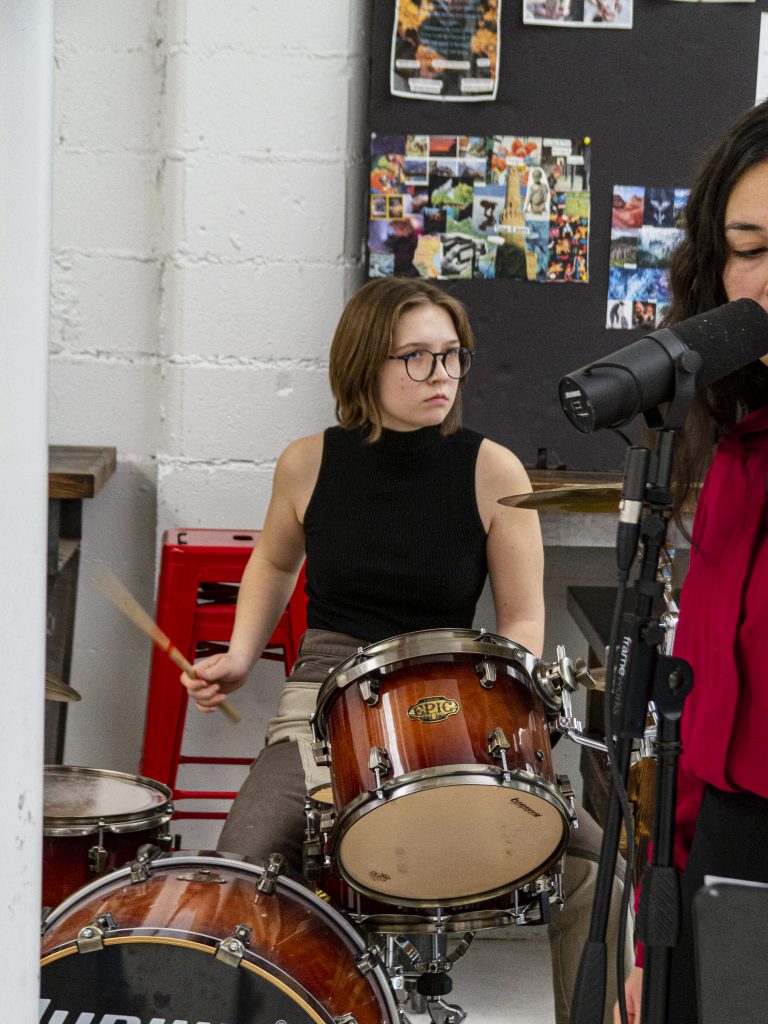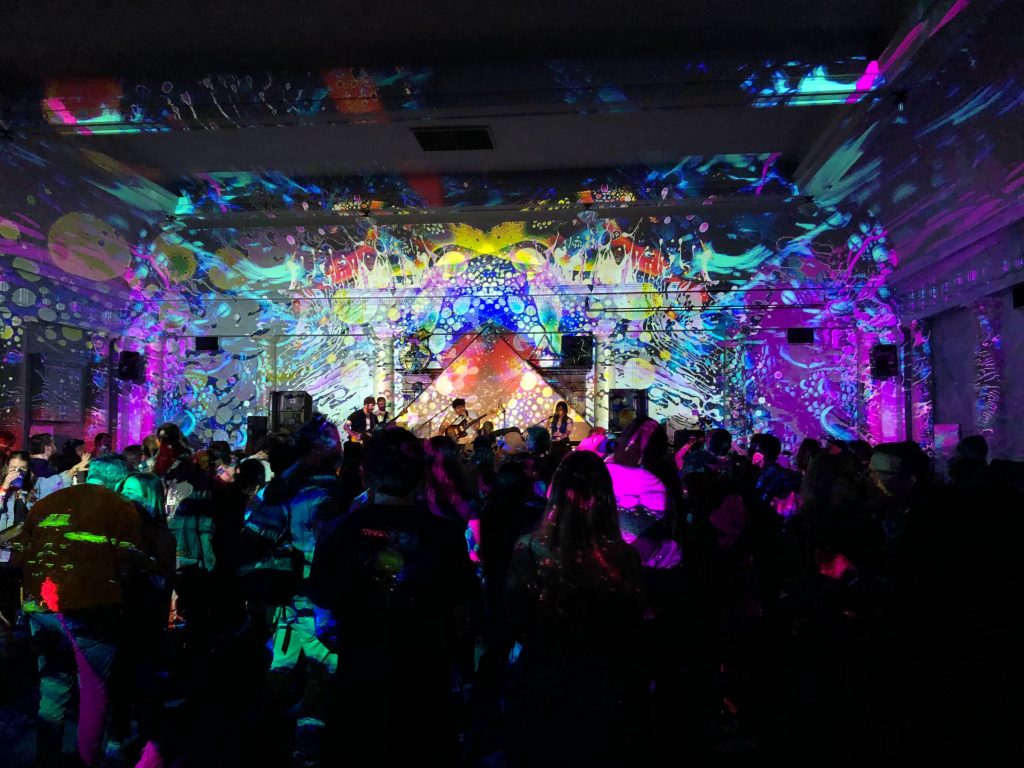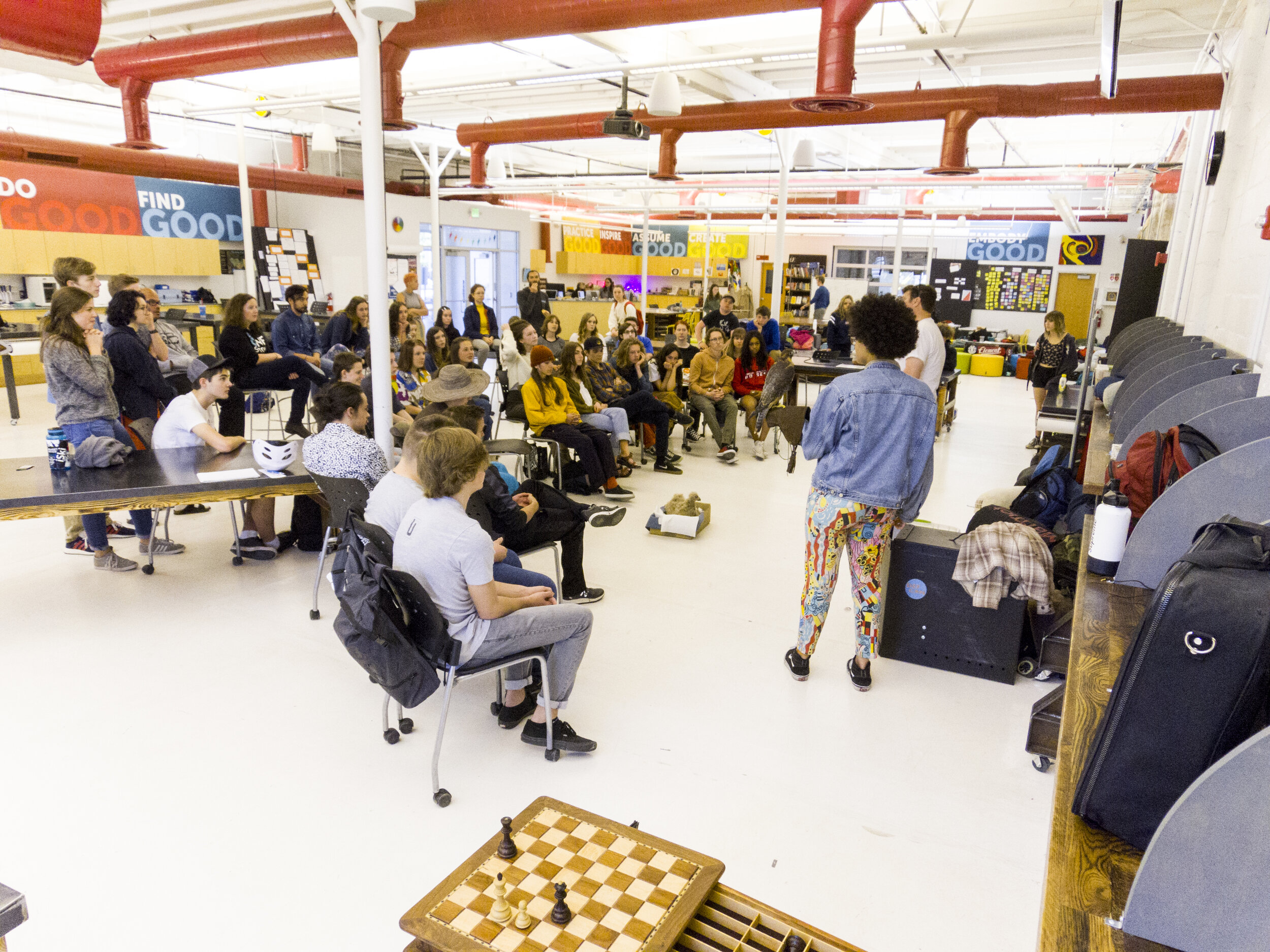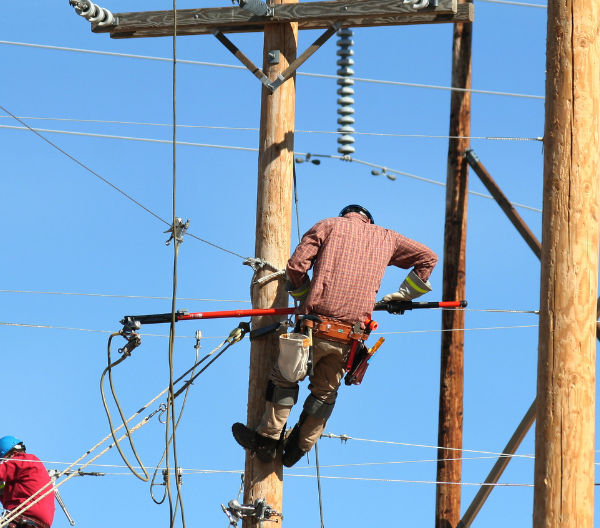by Jesse Ross, One Stone
Like many 16 year olds, Lila Cooper is a music superfan. She soundtracks her day with an eclectic mix of genres and songs, can name drop under-the-radar local artists, and is a serious drummer in her own right. But, unlike other music enthusiasts her age, Lila is also a venue manager who’s worked local clubs and Boise’s nationally-renowned Treefort Music Festival – weighing in on everything from audio setup and lighting to crowd safety and staff communications. Just as surprising as the fact that Lila skillfully handles responsibilities we usually associate with grizzled veterans of the music business is the fact that she does this work as a central part of her high school learning and graduation requirements.

A student at One Stone, a nationally-recognized innovator in student-led education, Lila and her peers are engaged in a radical educational experiment with far-reaching implications. By prioritizing the acquisition and practice of durable skills such as critical thinking, leadership, collaboration, and communication – the very skills most sought out by today’s employers – students like Lila are building confidence and real-world know-how that set them up for professional and academic success today and in the future.
As Lila succinctly puts what we all know, “you can’t learn real-world problem solving in the classroom.” Yet, all around the country, students continue to experience education that emphasizes test-taking and classroom-bound academic skills over relevant, hands-on experience. As we look to the future, rather than chasing the moving target of essential knowledge required for jobs that don’t yet exist, educators would do well to equip students with the personal toolkits and self-awareness (that is, the durable skills) that will allow them to adapt and thrive no matter what careers or life-paths they choose.
There are a number of ways to kick start this crucial change right now. The first is to support students in the scaffolded process of owning their own learning. A prerequisite for engaging in personally-relevant learning experiences is helping students identify their interests and giving them the opportunity to explore and test them in increasingly real-world settings. For Lila, her venue manager role came after regular collaboration with a mentor who introduced her to a series of “wayfinding” activities that facilitate personal exploration, goal-setting, and an iterative approach to gaining experience and expertise in her area of interest. At One Stone, where students design their own “explorations” or classes around their curiosities, this meant spending time building audio engineering skills in the on-site, student-run recording studio, working on a student-directed rock musical, and gaining an initial foothold in the local music scene through a summer internship that is a required component of One Stone’s year-round programming.

Another key to supporting the acquisition of durable skills is building a network of connections and opportunities within the neighborhoods and communities immediately surrounding the school. Looking beyond the walls of the classroom to the larger learning ecosystem is vital to creating education that is relevant, high stakes, and impactful. While One Stone employs an “Opportunity Wrangler” on their staff to identify community partners, local challenges, and needs that their students can meet, others can start by crowdsourcing opportunities from the PTA, advisory boards, and even going on a student-led “noticing walk” through the neighborhood to see (sometimes for the first time) just who shares the space, to hear their stories, and to discover opportunities and challenges that are ripe for student involvement.
Most importantly, we can give students ownership of this process. By taking on the mentor mindset, rather than that of the traditional instructor role, we’ll ask questions, learn alongside our students, avoid judgment or jumping too quickly into advice-giving mode, and, vitally, we’ll show them that we trust their curiosity and desire-to-grow to point them down the path of purposeful, lifelong learning.




